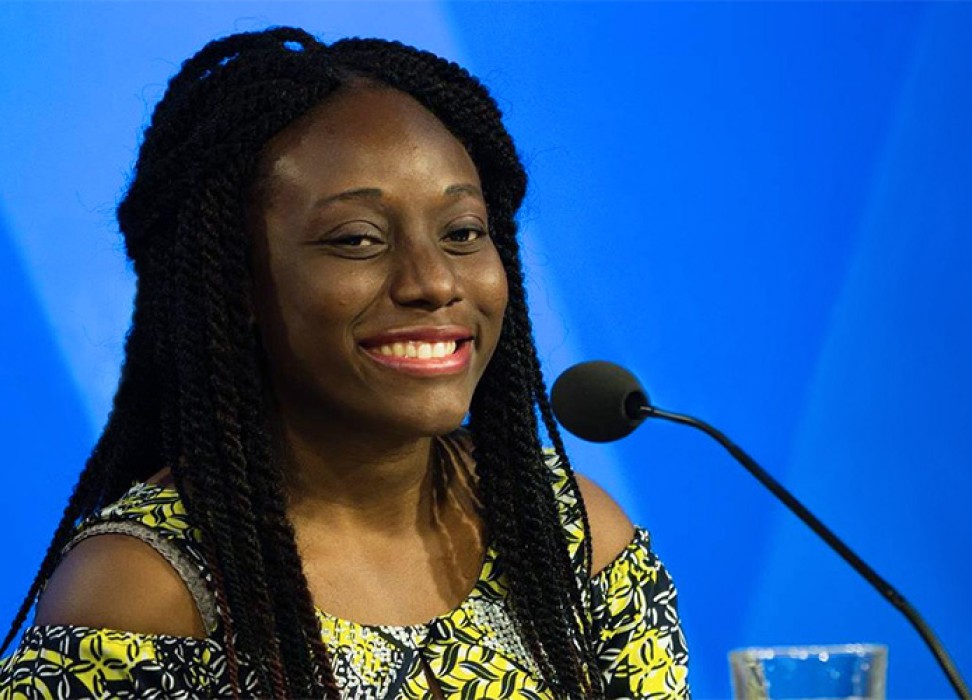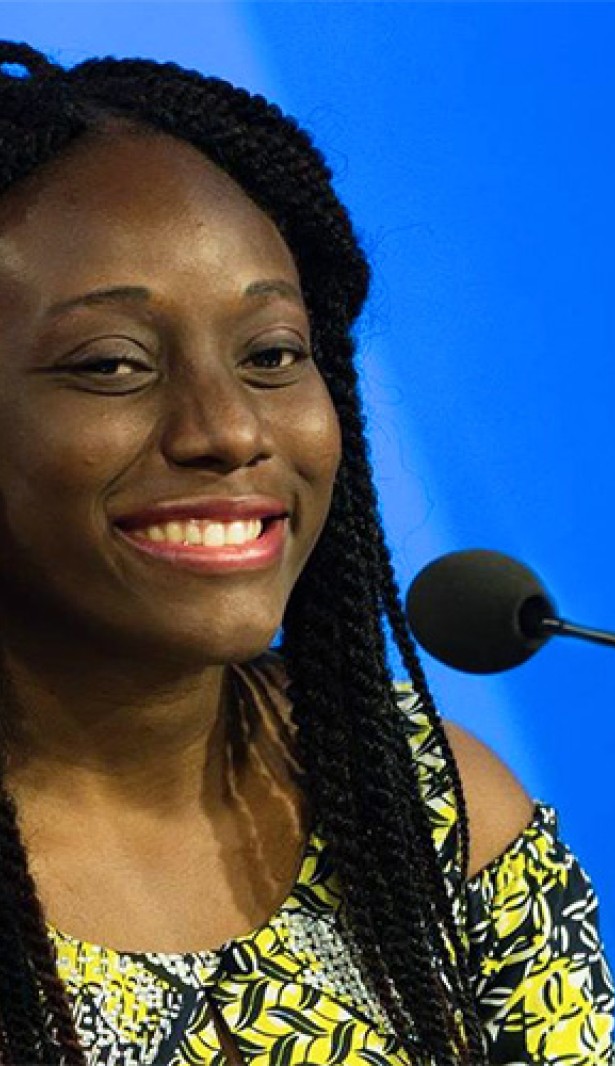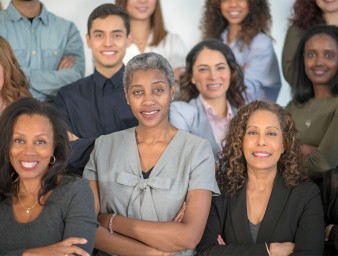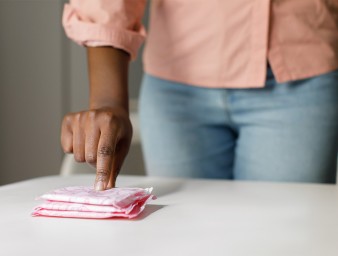From Benin to Florida: Dr Joannie Bewa’s global fight for women’s education
05 March 2019

Since she was a little girl, Joannie Bewa knew where education could get her. At the age of nine, Joannie nearly died during an asthma attack. She was rushed to hospital, and luckily survived. “I could not breathe. I just remember waking up and being so grateful for the young doctor who knew what drugs to give me and who made sure that I did not die. I knew very early on that I wanted to become a physician and help people.”
She was raised and educated in Cotonou, Benin. In Benin, only one third of adults can read and write.
But Joannie’s parents wanted her to beat those odds. “My parents believed in the power of education and in the power of pushing girls. They believed in going against social restrictions preventing women or girls to be who they are.”
“I was raised by a mother who is a very strong woman, and a very supportive father. I was taught about a mix of perseverance and daring to achieve. It made me realise that women can, and girls can. Young girls can.”
Now just 29, and the first university graduate in her family, Joannie has fulfilled her dream of becoming a doctor. She has also become a game changer in the field of human rights - last year, she was appointed as a UN Young Leader for the Sustainable Development Goals. She is currently working on her PhD in public health at the University of South Florida.
As a human rights defender, her focus is on education and women’s health.
When she was a teenager, Joannie suffered the tragic loss of her best friend to complications following an unsafe abortion. This trauma was the main motivating factor that led her medical career down the path of focusing on women’s reproductive health and rights.
Today, Joannie’s list of achievements is pages long: she has been featured on Melinda Gates’ list of six influential women on the topic of global access to contraception, she is a Women Deliver Leader, a Gates Foundation Goalkeeper and was awarded the ONE CAMPAIGN Woman of the Year Award. She sits on the Global Advisory Board of Merck for Mothers, an initiative promoting the health of mothers; and at only 26 was the first and youngest advocate to be part of the Benin Government official delegation, involved in negotiating with the UN on issues such as international development and health.
A serendipitous path
Although Joannie’s journey to become a prominent human rights defender has hardly been borne of simple luck, she insists that ‘serendipity’ has been a key driver to get her where she is today. “You never know what door you are going to open or close, and which door is behind that one,” she says.
One of her first major appearances was at a conference at an embassy in Benin when she was 21, still a medical student. Ready to go for a run, she was called last minute to attend. She had the choice to go home, change her clothes, and miss the conference, or to go, wearing her jogging outfit. “I knew it was weird, but I just didn’t care. I delivered my presentation and shared my experience and that was it.”
The attendees, including high-ranked ambassadors and deputy ministers, were impressed by her fearlessness. Joannie was called upon after the event to pursue the creation of a youth organisation. In 2010, she founded the Young Beninese Leaders Association, which focuses on health, youth leadership and entrepreneurship and gender equality.
Just one year later, the organisation had a major win against gender-based violence in Benin: it collected enough signatures to contribute to a campaign to lead the Benin Government to adopt the anti-gender-based violence law.
Education for change
As Joannie sails into the future, it is clear that her vision and her achievements will help advance the human rights agenda in health, women’s empowerment and education.
“My ultimate goal is to contribute very meaningfully to build a generation of young women who are educated, who have employable skills, who are healthy, and who live in an environment where they are supported by other women and men, and where they can collaborate with men to build a society.”
Maternal mortality is one issue she feels can be concretely addressed with better education for women and girls. “If a woman is educated, she knows that in the first month of her pregnancy, she needs to go and see a gynaecologist. If she is financially independent, she can afford to see that doctor. That doctor can then make sure she remains healthy and be at a lower risk of having any complication during her pregnancy and having a healthy baby.”
Joannie also wants to take time to focus on her personal life. She talks about the children she hopes to have one day in the future. “I will offer them the values my parents taught me. Whether they are girls or boys, I will show them that they have many capacities, and that they can achieve whatever they want. They need to know who they are, they need to have some values, and they need to believe in themselves. I will teach them they should not let the outside world define who they are.”
5 March 2019




